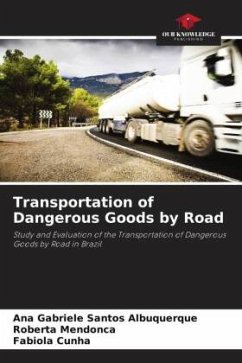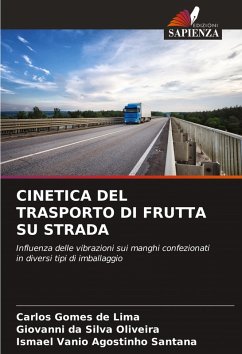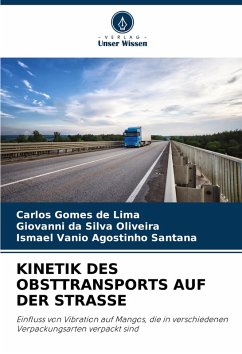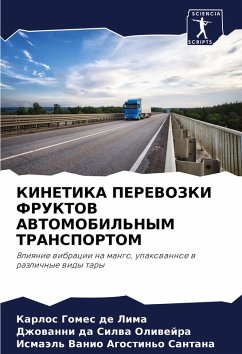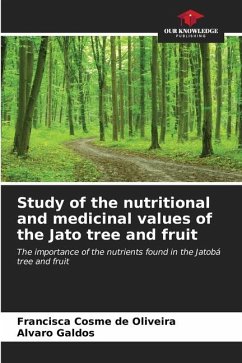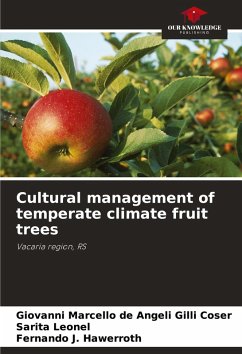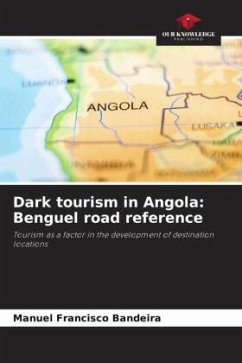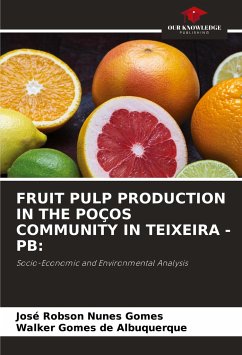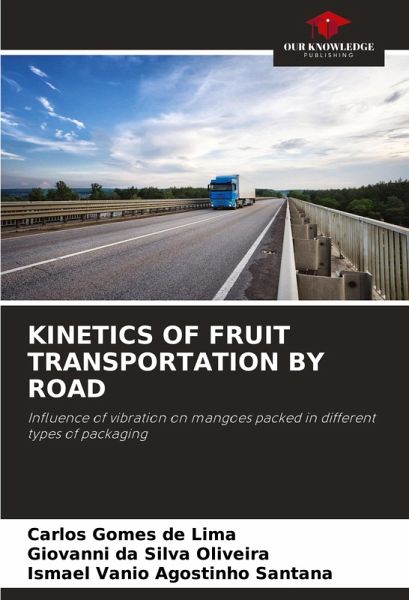
KINETICS OF FRUIT TRANSPORTATION BY ROAD
Influence of vibration on mangoes packed in different types of packaging
Versandkostenfrei!
Versandfertig in 6-10 Tagen
40,99 €
inkl. MwSt.

PAYBACK Punkte
20 °P sammeln!
Research estimates that up to 40% of agricultural production is lost in the post-harvest stages. This study analyzes the influence of corrugated cardboard and EPS packaging in protecting mangoes from the effects of vibration during road transportation. Compression tests were carried out on the packaging and its materials, where it was found that the cardboard packaging has greater resistance than the EPS packaging, 7058N to 2972N. The packages containing mangoes of two varieties, Tommy and Palmer, were subjected to vibration at a frequency of 30 Hz and an amplitude of 0.86 mm for a period of s...
Research estimates that up to 40% of agricultural production is lost in the post-harvest stages. This study analyzes the influence of corrugated cardboard and EPS packaging in protecting mangoes from the effects of vibration during road transportation. Compression tests were carried out on the packaging and its materials, where it was found that the cardboard packaging has greater resistance than the EPS packaging, 7058N to 2972N. The packages containing mangoes of two varieties, Tommy and Palmer, were subjected to vibration at a frequency of 30 Hz and an amplitude of 0.86 mm for a period of seven hours on a vibrating table built for this purpose. After this, the mangoes were stored in an environment with a temperature of 22ºC and relative humidity of approximately 40% for a period of 15 days. The mangoes were analyzed using absorbance, firmness, soluble solids and mass loss tests on day zero and every five days, checking for damage and any loss of fruit quality. The results of all the tests showed that there was a tendency for cardboard packaging to offer greater protection to the fruit when compared to EPS packaging.





